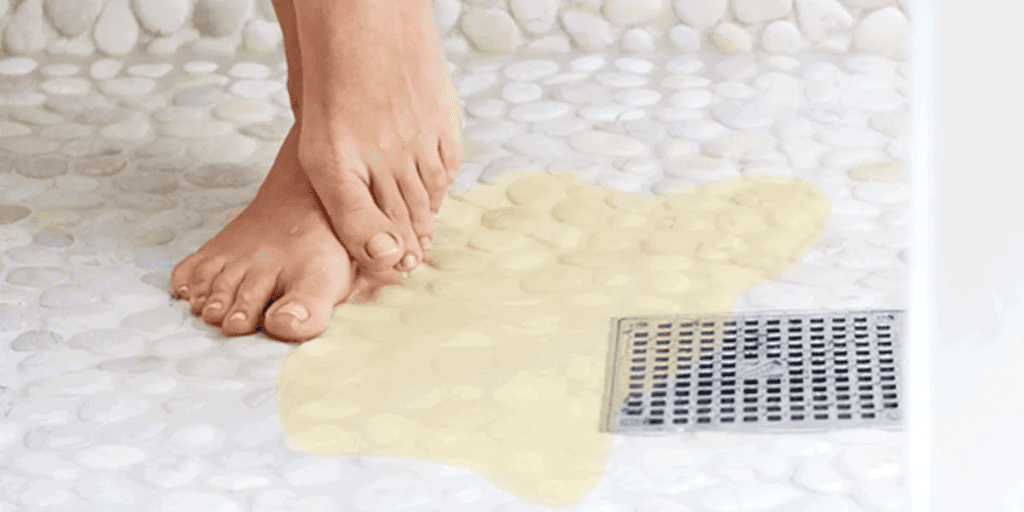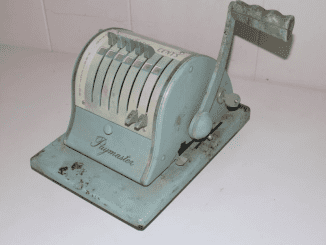Most of us have done it—let’s face it, peeing in the shower seems like a harmless, efficient way to save a little water and time. In fact, a study cited by Newsweek found that 76% of people have admitted to taking a quick bathroom break while showering. But according to experts, this seemingly innocent habit may not be as harmless as we think. Pelvic floor therapist Dr. Alicia Jeffrey-Thomas recently shared on TikTok why peeing in the shower can actually lead to some unexpected issues down the line, especially for your bladder health.

Most people have been tempted to pee in the shower at one point or another. Credit: EasyBuy4u/Getty Images
So, should you really stop peeing in the shower? Let’s dive into Dr. Jeffrey-Thomas’s insights and explore the surprising reasons why you might want to rethink this habit.
The Pavlovian Response: Conditioning Your Bladder
To understand why peeing in the shower might be problematic, Dr. Jeffrey-Thomas draws a parallel to the famous Pavlov’s dog experiment. In this study, Russian physiologist Ivan Pavlov trained dogs to associate the sound of a bell with food. Over time, the dogs began to salivate just by hearing the bell, even when no food was present. This phenomenon, known as classical conditioning, explains how our brains can link two seemingly unrelated stimuli.
When you pee in the shower, your brain may start to link the sound of running water with the urge to urinate. Eventually, you might find yourself needing to pee every time you hear water—whether it’s the sound of rain, a running faucet, or even a babbling brook. While this might not seem like a big deal, it can become quite inconvenient, especially if you frequently experience the urge to urinate when you’re not near a bathroom.
The Problem with Peeing to the Sound of Running Water
So, what’s the harm in associating running water with the urge to pee? For people with strong bladder control, this conditioning may be a minor annoyance. But for those who have pelvic floor dysfunction or experience bladder leaks, this habit could actually worsen their symptoms. Peeing in the shower may reinforce a “trigger” response, meaning that simply hearing the sound of running water could prompt an urgent need to urinate. Over time, this can contribute to bladder sensitivity and urgency issues, which are especially challenging for people already dealing with incontinence or overactive bladder.
Impact on Pelvic Floor Health
Your pelvic floor muscles play a crucial role in supporting your bladder, bowel, and other internal organs. Dr. Jeffrey-Thomas warns that peeing in the shower could contribute to poor pelvic floor health in the long run. When you develop the habit of peeing on cue to the sound of running water, you may inadvertently disrupt your natural bladder signals, leading to a loss of control and a greater risk of leakage.
Additionally, repeatedly urinating in a standing position, especially in the shower, may contribute to weakening pelvic floor muscles. Unlike the relaxed, seated position of a toilet, standing can place additional strain on these muscles over time. This strain may increase the risk of pelvic floor dysfunction, particularly for women who are more prone to pelvic floor issues due to pregnancy, childbirth, and menopause.

Why You Feel the Urge Around Water
You may have noticed that you often need to pee when you’re in the shower, taking a bath, or even swimming. This phenomenon is partially due to the “diuretic effect” of being in water, which can trigger the body’s urge to urinate. When the body is submerged in water or exposed to it, it can prompt a natural response to expel excess fluids. This effect, combined with the habit of peeing in the shower, can create a Pavlovian cycle that further conditions you to associate water with the need to urinate.
It’s not just showering that can trigger this effect. If you’ve ever felt the sudden urge to pee while hearing a waterfall or standing in the rain, you’re experiencing the same conditioned response that Dr. Jeffrey-Thomas describes. The brain learns to make these associations, and over time, it becomes a reflexive response.

Social Media’s Surprised Reactions
When Dr. Jeffrey-Thomas shared her insights on TikTok, viewers were astounded. Many began reflecting on their own experiences and realized how conditioned they had become to urinate around water. One commenter shared, “I grew up peeing in the ocean, and now every time I get in the pool, I have to go!” Others questioned why they never felt the need to pee until they stepped into the shower.
For some, the revelation was a game-changer, prompting them to rethink their bathroom habits. Others, however, questioned the science behind it, asking if the urge was something they could unlearn by simply changing their behavior. Regardless of the opinions, it’s clear that the conversation sparked curiosity and even a bit of humor, as people began discussing their own quirks and habits around water.
How to Break the Peeing-in-the-Shower Habit
If you’re thinking about breaking the habit, here are a few tips to help you retrain your brain and bladder:
1. Stick to a Bathroom Routine
By consistently using the toilet before you get in the shower, you’ll reduce the chance of needing to go while you’re bathing. Establishing a regular bathroom routine can help train your bladder and minimize your chances of associating water with the urge to urinate.
2. Practice Pelvic Floor Exercises
Strengthening your pelvic floor muscles can enhance bladder control and reduce the risk of leakage. Exercises like Kegels, which involve contracting and relaxing the pelvic floor muscles, can improve strength and endurance. This is particularly beneficial for individuals prone to bladder sensitivity or incontinence, as stronger pelvic muscles offer greater support to the bladder.
@thepelvicdancefloor Reply to @gwas007 why you shouldn’t pee in the shower (probably part 1 of multiple?) #learnontiktok #tiktokpartner ♬ Similar Sensation (Instrumental) – BLVKSHP
3. Mind Your Triggers
Once you’re aware of the association between water and the urge to pee, start paying attention to other triggers. Do you find yourself needing to pee when you wash your hands or hear the kitchen faucet running? Being mindful of these patterns can help you gain control over your conditioned response and resist the urge to pee in response to these triggers.
4. Focus on Relaxation Techniques
If hearing water triggers the need to pee, try distracting your mind with breathing exercises or other relaxation techniques. Deep breathing can help you refocus your mind away from the urge and may reduce the intensity of your response to water-related sounds.
Conclusion: Time to Rethink Peeing in the Shower?
Peeing in the shower may seem like a harmless shortcut, but as Dr. Jeffrey-Thomas points out, it could lead to an unintended Pavlovian effect on your bladder. By associating the sound of running water with the urge to urinate, you may end up triggering the need to pee anytime you’re around water, whether you’re washing dishes, swimming, or caught in the rain.
While this habit may not be a concern for everyone, those with bladder sensitivity or pelvic floor issues may want to consider breaking the cycle. By following a regular bathroom routine, practicing pelvic floor exercises, and being mindful of triggers, you can help support better bladder control and avoid any awkward, water-related surprises in the future.
So next time you step into the shower, it might be worth thinking twice before relieving yourself. After all, a few minutes of patience could save you from a lifetime of crossing your legs every time you hear a running faucet.


